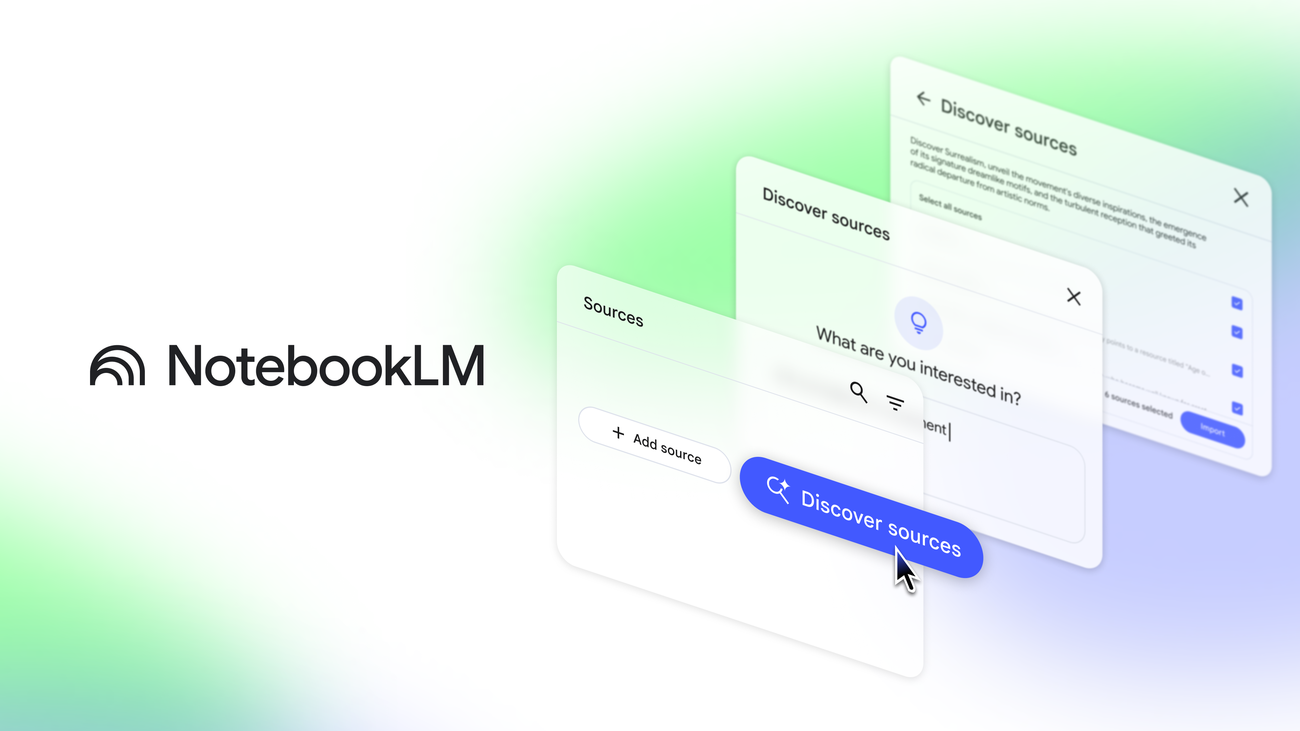NotebookLM is an AI tool that helps me keep track of documents, notes, and team info. Unlike some other AI tools, it only gives answers based on the documents I upload, so I don't have to worry about hallucinations much as ChatGPT . If your company uses Google Workspace (like Square does), you can also pull in docs, spreadsheets, and more directly.
Here's how I use it in my day-to-day work:
Notebooks for Each Team Member
I make a notebook for every person on my team, like "Notebook – Alice." In each one, I add things like code reviews, goals, 1:1 notes, and project docs. Each notebook can hold up to 50 files.
Why this helps:
- Everything about that person is in one place
- I can quickly ask questions like "What has Alice worked on lately?" or "What's been slowing Bob down?"
AI-Generated 1:1 Summaries
After a 1:1 meeting, I use NotebookLM to create a short summary of what we talked about and what the next steps are. I also paste the full meeting notes into their notebook.
Why this helps:
- Keeps a clear record of each conversation
- Easy to look back later and remember what we talked about
- Helps the AI give better answers next time
Using Questions to Find Patterns
I often type in questions like:
- "What are Alice's biggest accomplishments this quarter?"
- "What blockers has Bob brought up more than once?"
- "Based on what we have spoken about recently, develop a list of 1-1 topics for next week"
Why this helps:
- Saves me time before check-ins or reviews
- Helps me notice trends I might have missed
- Makes meetings more productive
Mind Maps for Career Growth and Projects
Sometimes I ask the AI to make a mind map based on someone's past work. For example: "Show me some career path options for Bob based on what he's done."
Why this helps:
- Makes it easier to talk through growth options
- Shows possible next steps in a visual way
Keeping Track of Performance
I add things like our engineering rubric, past reviews, self-assessments, and peer feedback into each person's notebook. Then I use queries to get a better picture of their performance over time.
I don't let NotebookLM make the evaluation for me. I just use it to spot patterns or feedback I might have missed. It's important to note that it can still hallucinate, so checking the sources is handy. Additionally, sometimes it misses something that is in the source material, so it's still important to read the source material yourself. However, once I've done that, NotebookLM is great at exposing trends.
This helps me:
- give fair, thoughtful reviews
- Makes it easier to coach people with real examples
- Lets me spot patterns that I may have missed, and prevents hindsight bias.
My Notebook for the Whole Team
I also keep a personal notebook with team-wide stuff like OKRs, meeting notes, and technical decisions.
Why this helps:
- Saves me from digging through old docs
- Keeps important info in one place
In summary...
My NotebookLM setup is:
- 👥 1 Notebook per Team Member: Track each person's work and progress (Code reviews, 1:1 notes, goals, feedback)
- 🏢 Team Notebook - Central place for team context (OKRs, active projects, strategic objectives)
NotebookLM makes my job easier. It helps me stay on top of everything without spending hours digging through notes. Most importantly, it helps me show up more prepared and present for my team.
